Filter by
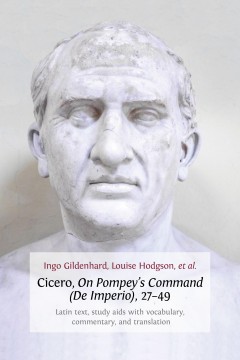
Cicero, On Pompey’s Command (De Imperio), 27-49 : Latin Text, Study Aids wi…
Overview: In republican times, one of Rome's deadliest enemies was King Mithridates of Pontus. In 66 BCE, after decades of inconclusive struggle, the tribune Manilius proposed a bill that would give supreme command in the war against Mithridates to Pompey the Great, who had just swept the Mediterranean clean of another menace: the pirates. While powerful aristocrats objected to the proposal, wh…
- Edition
- -
- ISBN/ISSN
- 978-1-78374-079-6
- Collation
- -
- Series Title
- -
- Call Number
- 800 GIL c
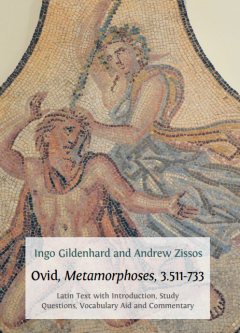
Ovid, Metamorphoses, 3.511-733 : Latin Text with Introduction, Commentary, Gl…
This extract from Ovid's 'Theban History' recounts the confrontation of Pentheus, king of Thebes, with his divine cousin, Bacchus, the god of wine. Notwithstanding the warnings of the seer Tiresias and the cautionary tale of a character Acoetes (perhaps Bacchus in disguise), who tells of how the god once transformed a group of blasphemous sailors into dolphins, Pentheus refuses to acknowledge t…
- Edition
- -
- ISBN/ISSN
- -
- Collation
- -
- Series Title
- -
- Call Number
- 800 ZIS o
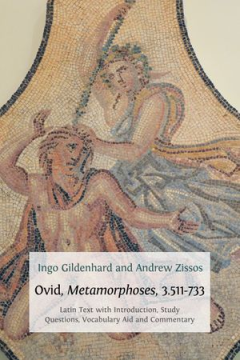
Ovid, Metamorphoses, 3.511-733
This extract from Ovid's 'Theban History' recounts the confrontation of Pentheus, king of Thebes, with his divine cousin, Bacchus, the god of wine.
- Edition
- -
- ISBN/ISSN
- 9781783740840
- Collation
- -
- Series Title
- -
- Call Number
- 821
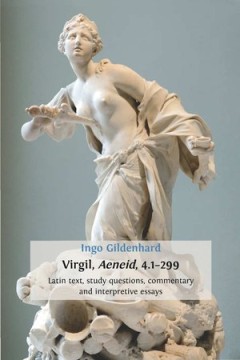
Virgil, Aeneid, 4.1-299
Love and tragedy dominate book four of Virgil’s most powerful work, building on the violent emotions invoked by the storms, battles, warring gods, and monster-plagued wanderings of the epic’s opening.
- Edition
- -
- ISBN/ISSN
- 9781909254176
- Collation
- -
- Series Title
- -
- Call Number
- -
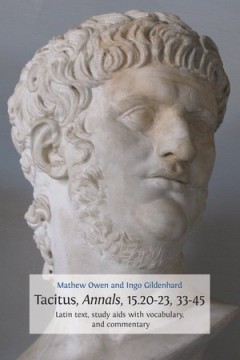
Tacitus, Annals, 15.20-35. 33-45
The emperor Nero is etched into the Western imagination as one of ancient Rome’s most infamous villains, and Tacitus’ Annals have played a central role in shaping the mainstream historiographical understanding of this flamboyant autocrat.
- Edition
- -
- ISBN/ISSN
- 9781783740024
- Collation
- -
- Series Title
- -
- Call Number
- -
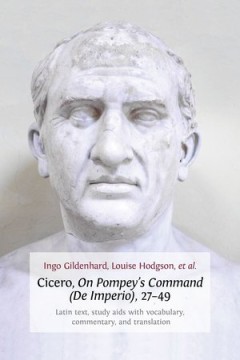
Cicero, On Pompey’s Command (De Imperio), 27-49
In republican times, one of Rome's deadliest enemies was King Mithridates of Pontus. In 66 BCE, after decades of inconclusive struggle, the tribune Manilius proposed a bill that would give supreme command in the war against Mithridates to Pompey the Great, who had just swept the Mediterranean clean of another menace: the pirates. While powerful aristocrats objected to the proposal, which would …
- Edition
- -
- ISBN/ISSN
- 9781783740796
- Collation
- -
- Series Title
- -
- Call Number
- -
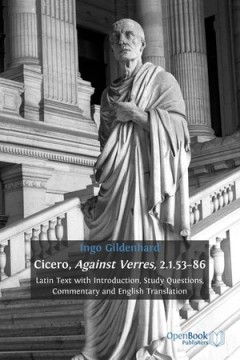
Cicero, Against Verres, 2.1.53-86
Looting, despoiling temples, attempted rape and judicial murder: these are just some of the themes of this classic piece of writing by one of the world’s greatest orators. This particular passage is from the second book of Cicero’s Speeches against Verres, who was a former Roman magistrate on trial for serious misconduct. Cicero presents the lurid details of Verres’ alleged crimes in exqu…
- Edition
- -
- ISBN/ISSN
- -
- Collation
- -
- Series Title
- -
- Call Number
- -
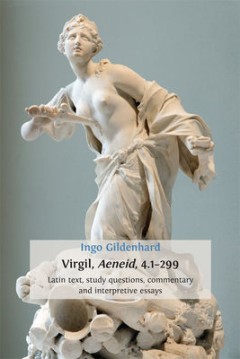
Virgil, Aeneid, 4.1-299. Latin Text, Study Questions, Commentary and Interpre…
Love and tragedy dominate book four of Virgil's most powerful work, building on the violent emotions invoked by the storms, battles, warring gods, and monster-plagued wanderings of the epic's opening. Destined to be the founder of Roman culture, Aeneas, nudged by the gods, decides to leave his beloved Dido, causing her suicide in pursuit of his historical destiny. A dark plot, in which erotic …
- Edition
- -
- ISBN/ISSN
- -
- Collation
- -
- Series Title
- -
- Call Number
- 870 GIL v
 Computer Science, Information & General Works
Computer Science, Information & General Works  Philosophy & Psychology
Philosophy & Psychology  Religion
Religion  Social Sciences
Social Sciences  Language
Language  Pure Science
Pure Science  Applied Sciences
Applied Sciences  Art & Recreation
Art & Recreation  Literature
Literature  History & Geography
History & Geography